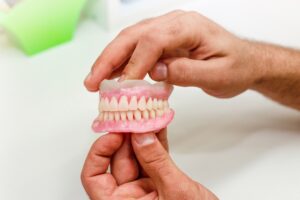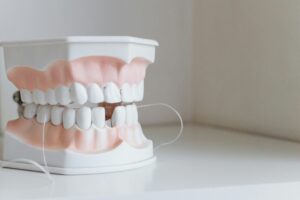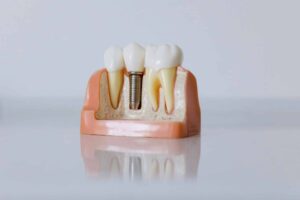Sleep Apnea can be dental related
If you or your partner snore excessively, it may make sense to see a Dentist who has an interest in sleep related breathing disorders. Dentists can detect symptoms of sleep apnea and snoring without actually watching you sleep. Evidence of teeth grinding, a small jaw, an overbite or oversized tongue or enlarged tonsils may be a tell-tale sign that you are a prime candidate to suffer from obstructive sleep apnea.
Dental Devices for Sleep Apnea
The CPAP machine is an effective treatment for sleep apnea. However, the need to use a mask and the noise it creates mean that people don’t use them as much as they should. In comparison, specially prescribed dental devices aim to change the position of the jaw to keep your airways clear.
Two main types of dental devices exist:
- Mandibular Advancement Device (MAD) – This is the most common type of dental device for sleep apnea. Like a mouthguard, these clip onto your teeth and act to ease your lower jaw forward to correct the overbite during sleep. Your dentist will administer and monitor how this is used so it provides the necessary results.
- Tongue Retaining Device – This dental device is a simple splint that holds the tongue in place to keep the airway open.
Dental devices can control sleep apnea long-term and can avoid surgery. They are not as limiting as CPAP machines, so patients tend to wear them more often. With all medical treatments there is a bit of an adjustment to wearing dental devices. It is also very important to have your dentist fit this correctly so that it does not cause any complications such as teeth movement, teeth pain or TMJ.
Dr Finkelstein Dentist has many years of experience and training in treating patients for sleep apnea and snoring. The results are extremely positive, and patients enjoy not having to put on a CPAP machine at night. If you snore, have sleep apnea or grind your teeth excessively, please book an appointment so we can help prevent any dental or health issues from arising.








